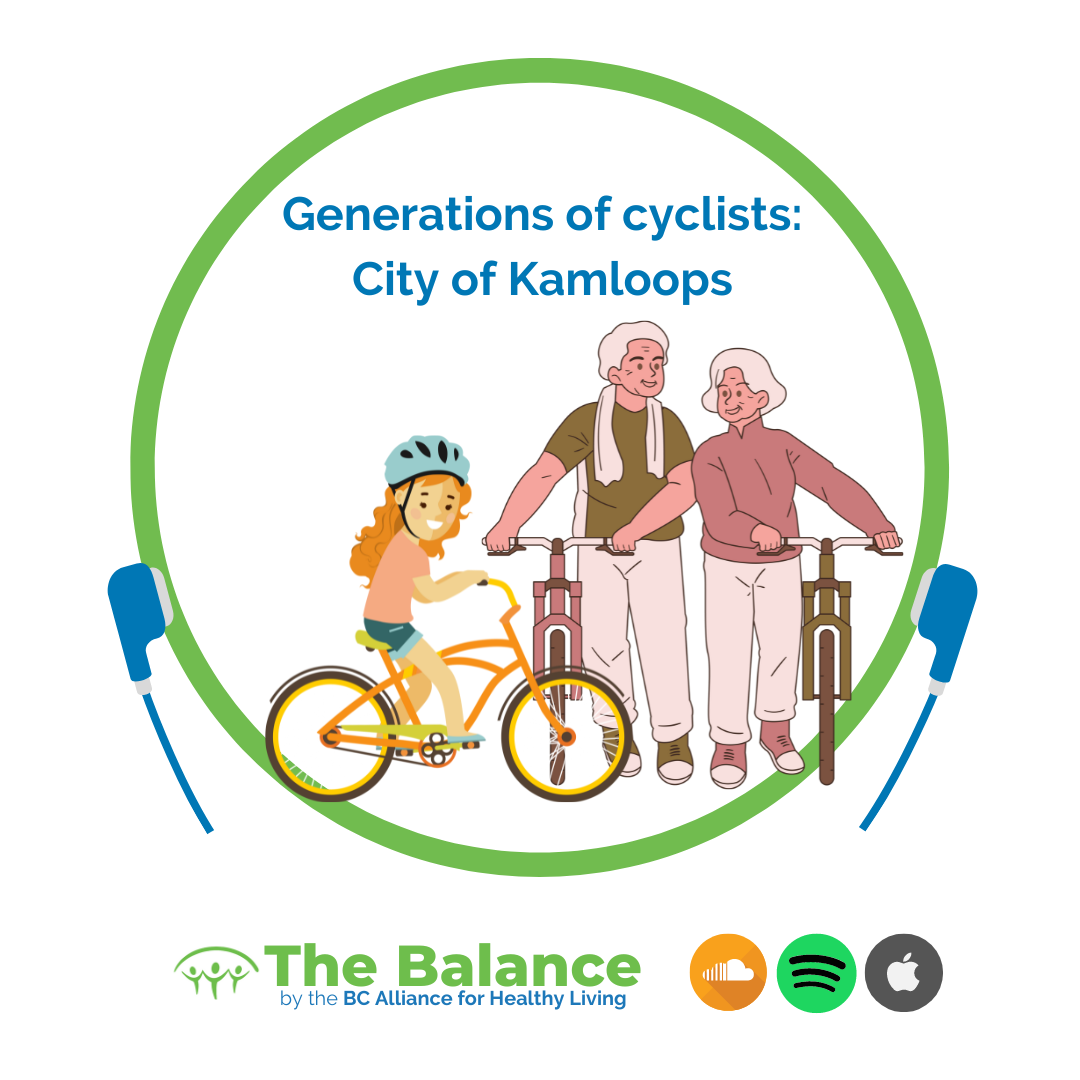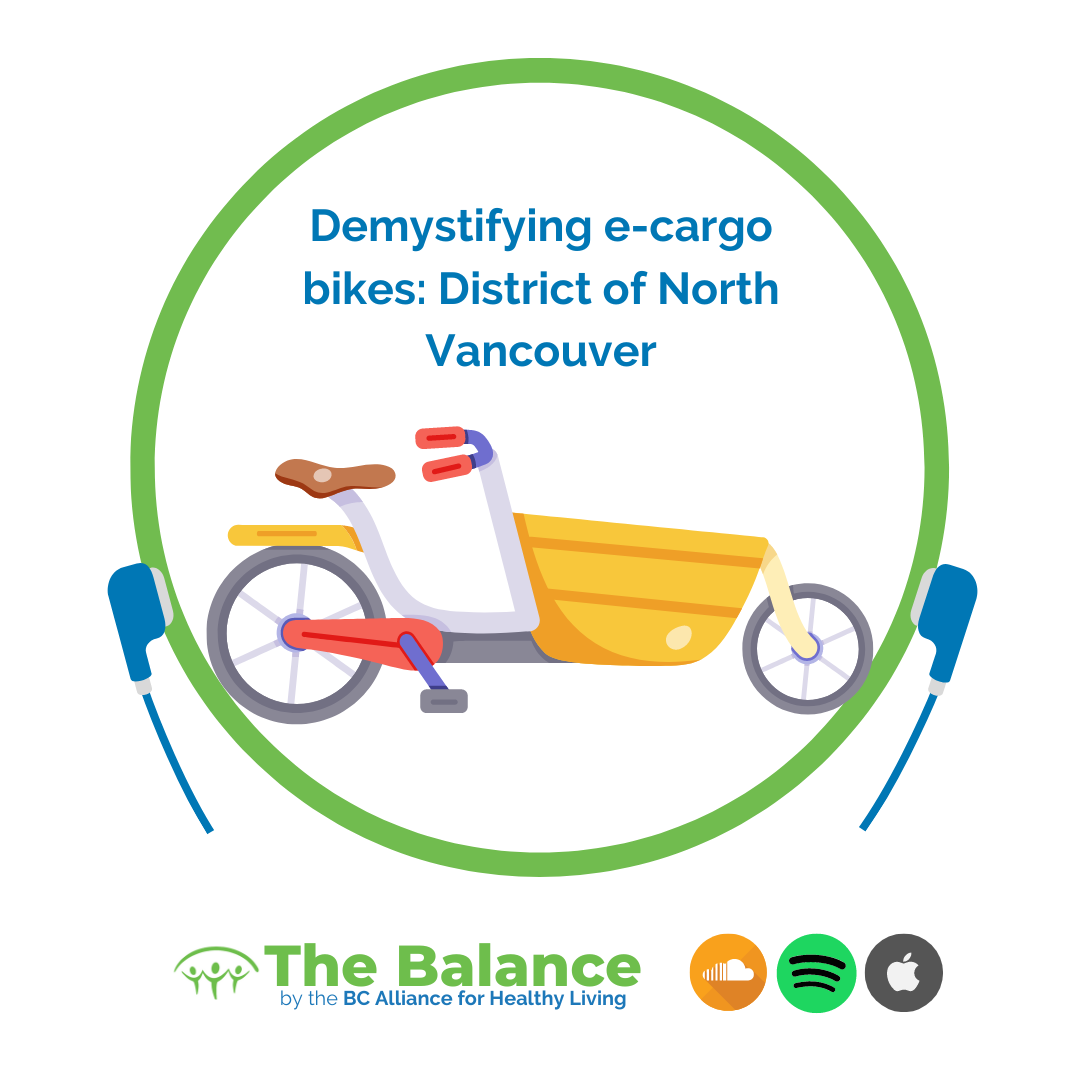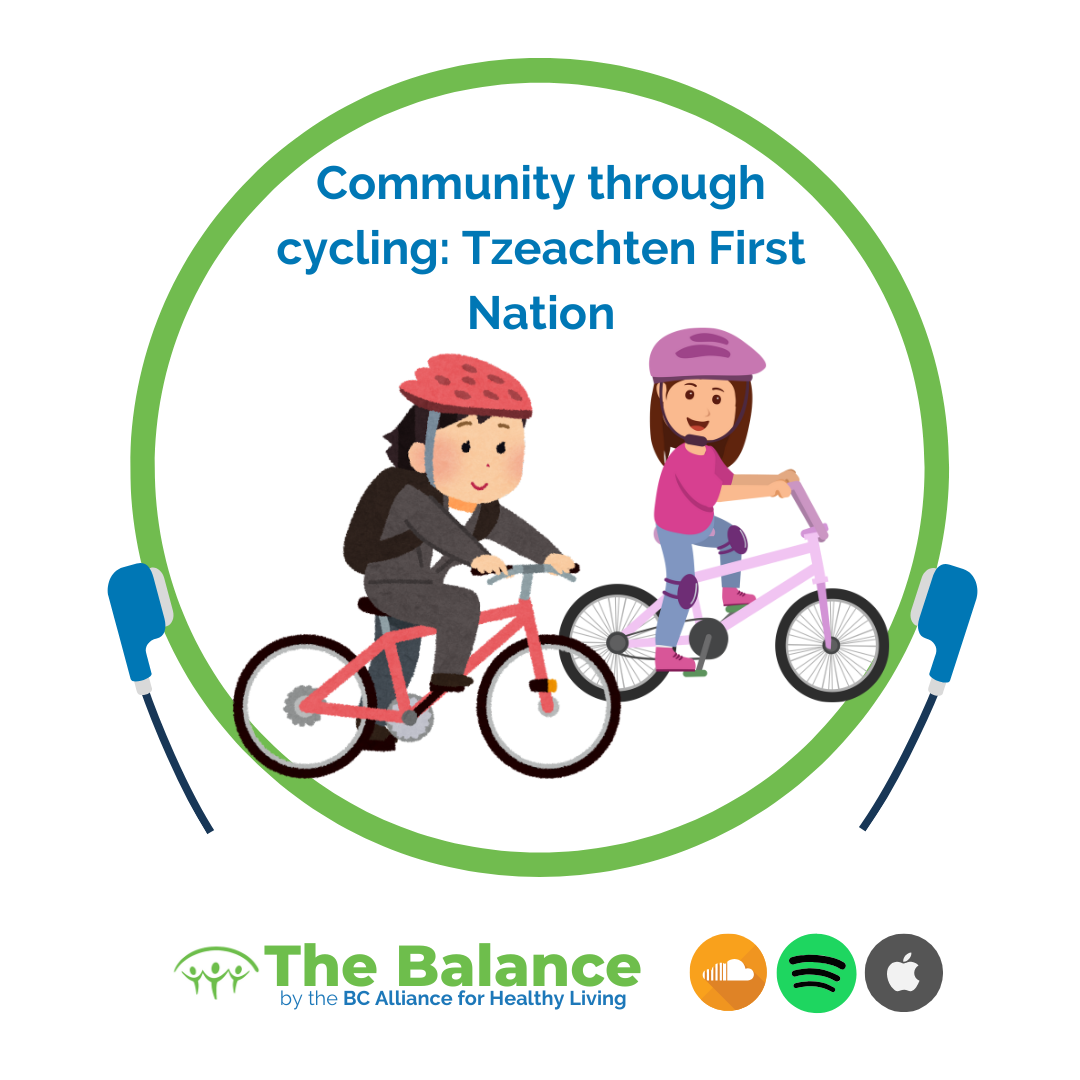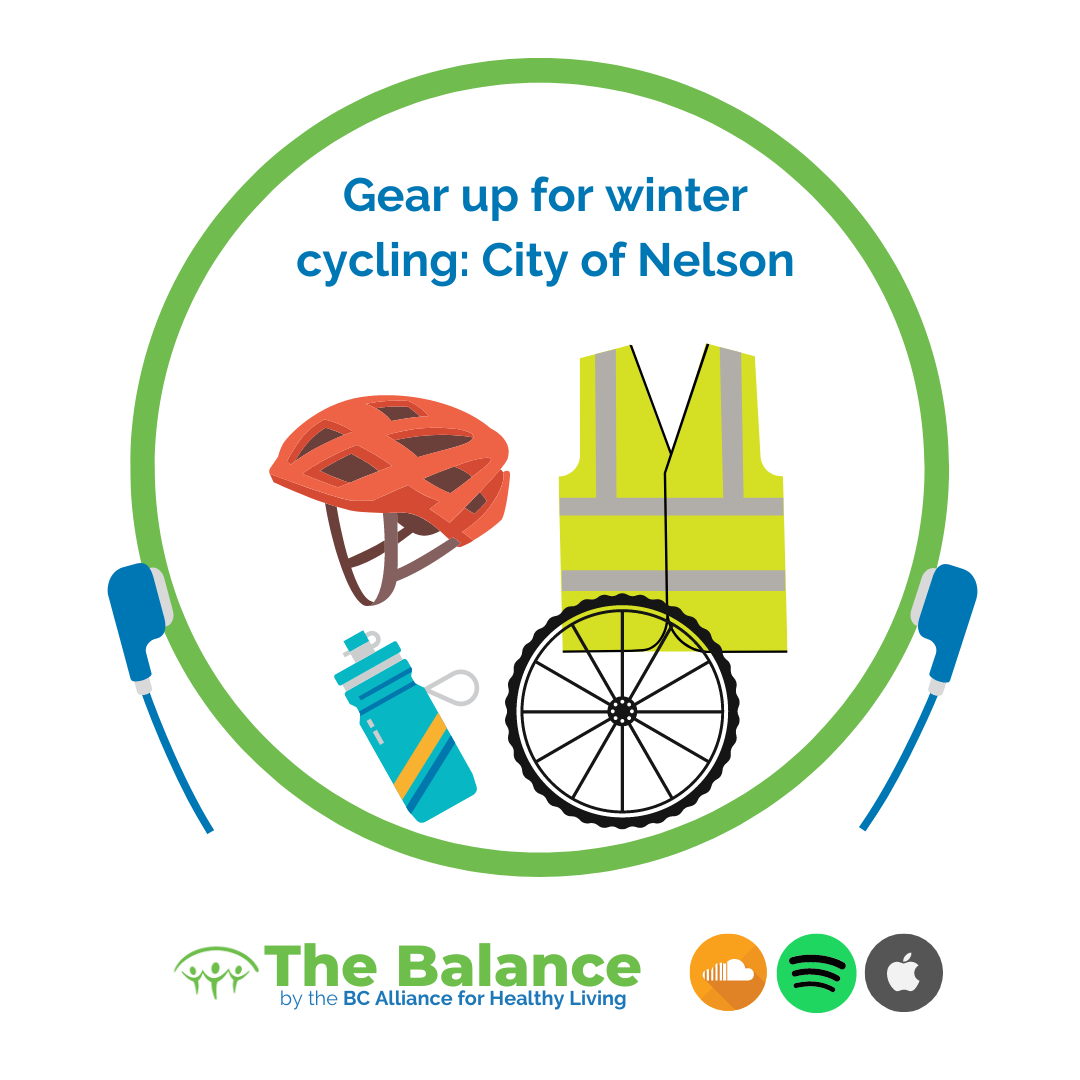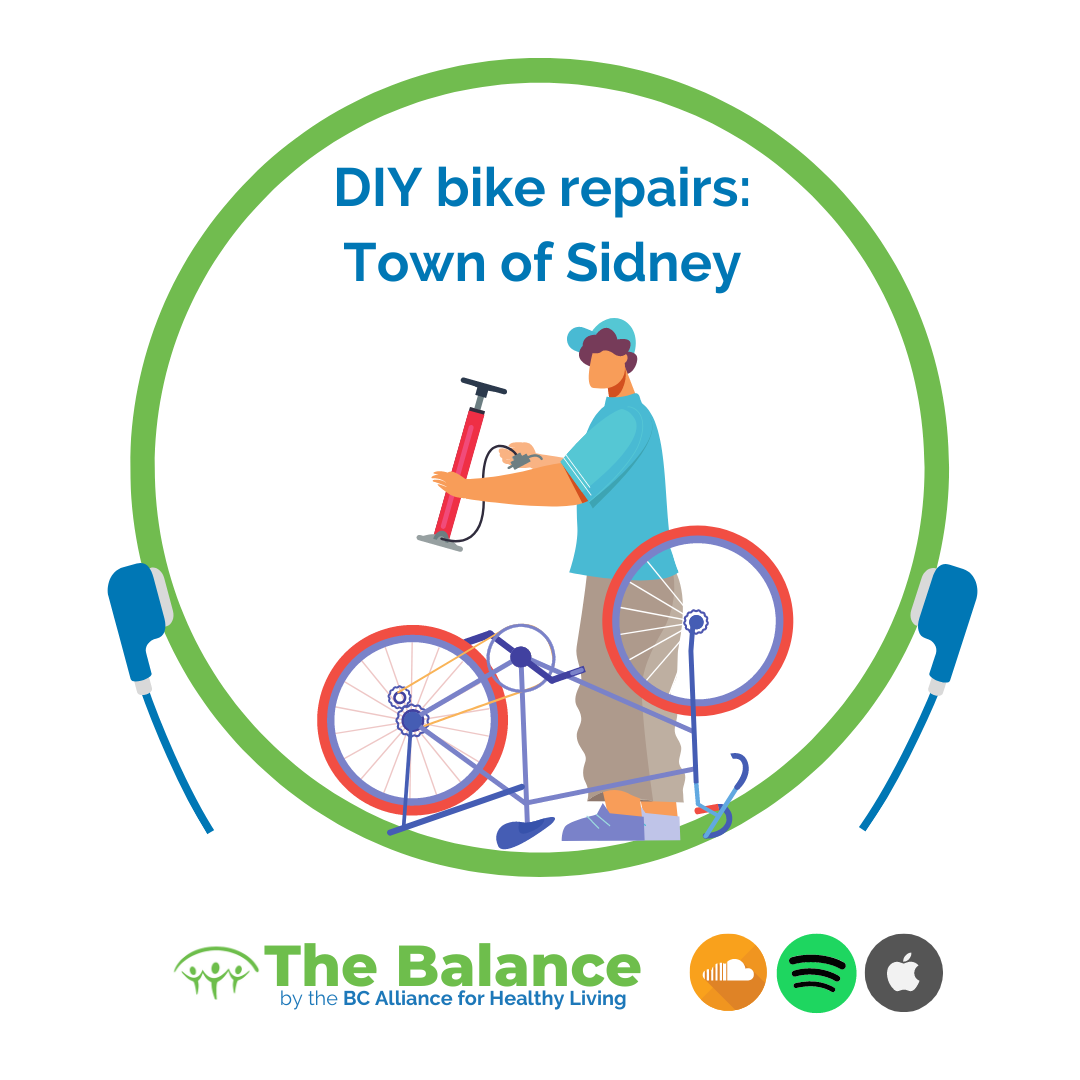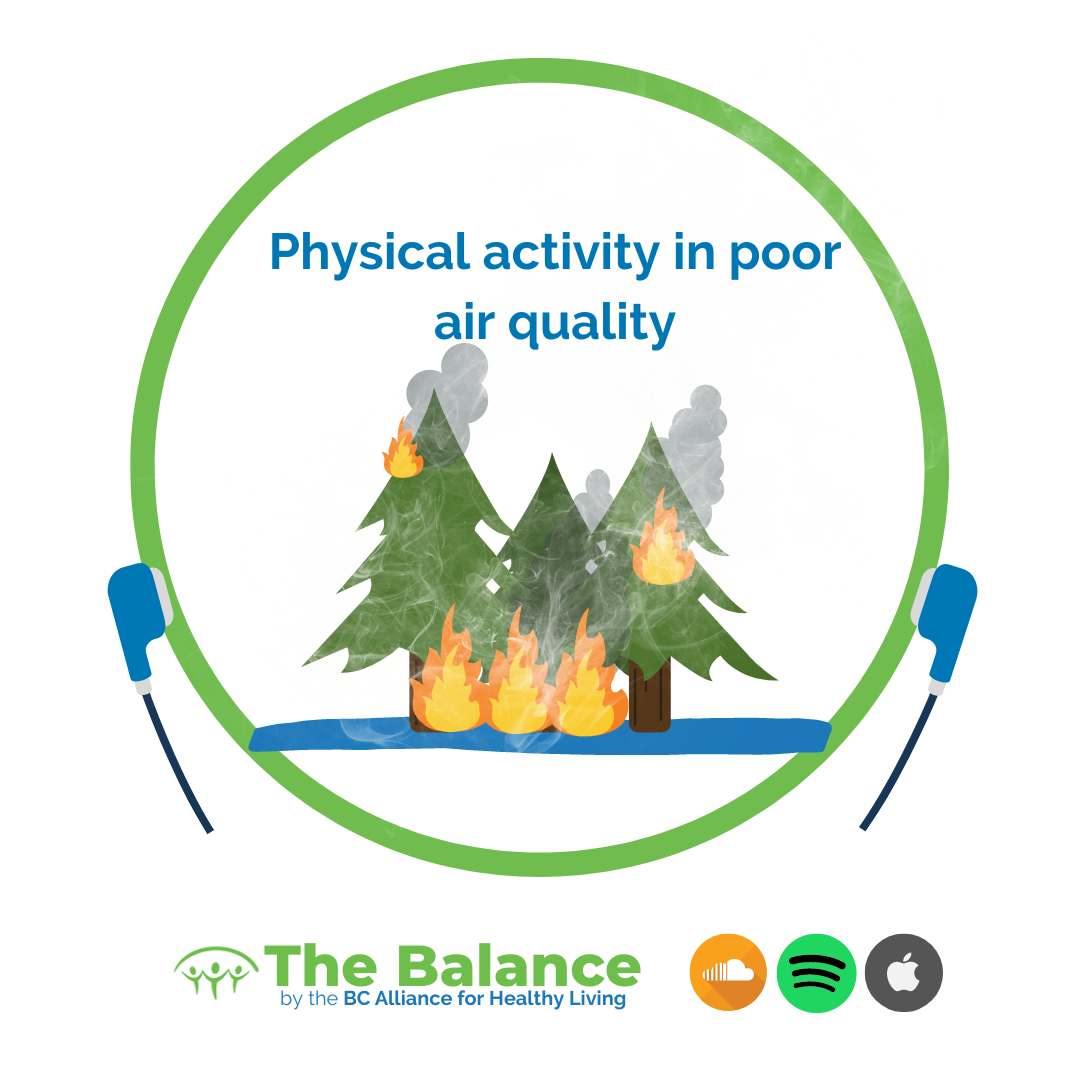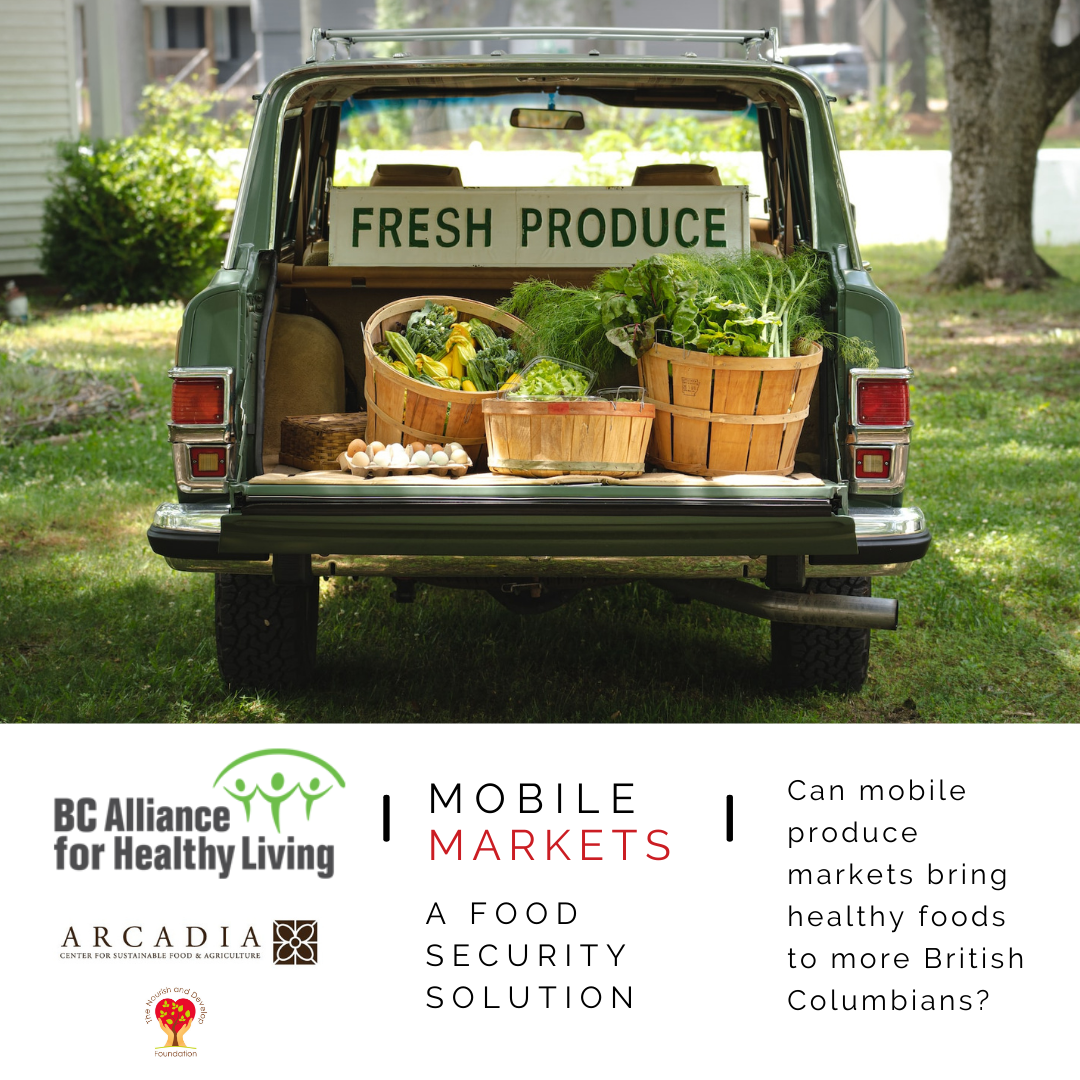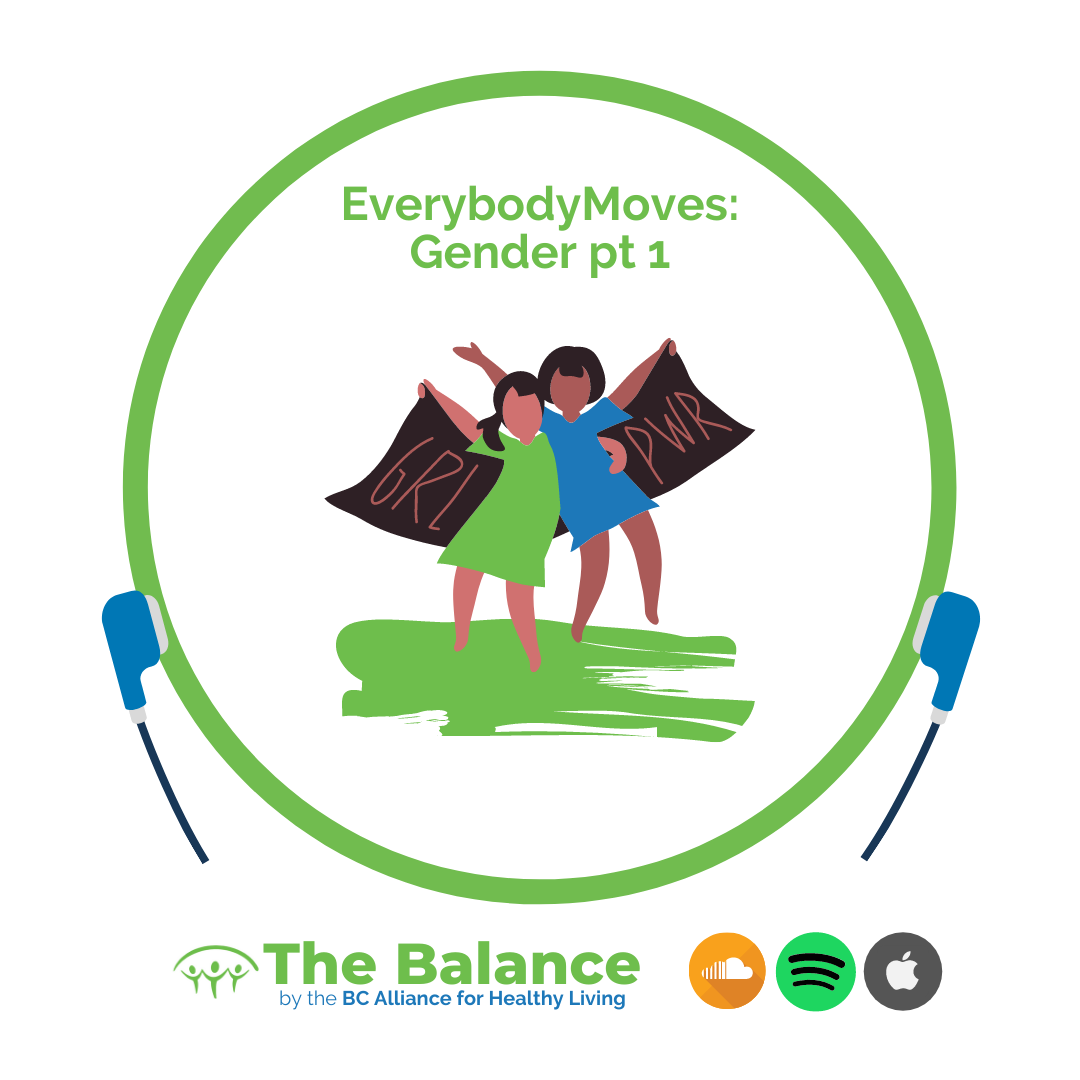chronic disease prevention
-
Communities Going Active: City of Kamloops
In this five-part Communities Going Active series, we will hear about local governments and groups that launched projects to promote and encourage the use of active transportation in their communities. These projects address barriers that prevent people from trying out cycling or even scootering, such as costs, lack of gear, or perhaps lack of experience.
-
Communities Going Active: District of North Vancouver
In this five-part Communities Going Active series, we will hear about local governments and groups that launched projects to promote and encourage the use of active transportation in their communities. These projects address barriers that prevent people from trying out cycling or even scootering, such as costs, lack of gear, or perhaps lack of experience.
-
Communities Going Active: Tzeachten First Nation
In this five-part Communities Going Active series, we will hear about local governments and groups that launched projects to promote and encourage the use of active transportation in their communities. These projects address barriers that prevent people from trying out cycling or even scootering, such as costs, lack of gear, or perhaps lack of experience.
-
Communities Going Active: City of Nelson
In this five-part Communities Going Active series, we will hear about local governments and groups that launched projects to promote and encourage the use of active transportation in their communities. These projects address barriers that prevent people from trying out cycling or even scootering, such as costs, lack of gear, or perhaps lack of experience.
-
Communities Going Active: Town of Sidney
In this five-part Communities Going Active series, we will hear about local governments and groups that launched projects to promote and encourage the use of active transportation in their communities. These projects address barriers that prevent people from trying out cycling or even scootering, such as costs, lack of gear, or perhaps lack of experience.
-
Physical activity in poor air quality
In this episode, Dr. Luisa Giles (University of the Fraser Valley) speaks about the effects of air pollution on our bodies, ways we can protect ourselves and minimize our exposure to wildfire smoke, how we can continue to keep ourselves active even when air quality is poor, and how recreation leaders can support their communities…
-
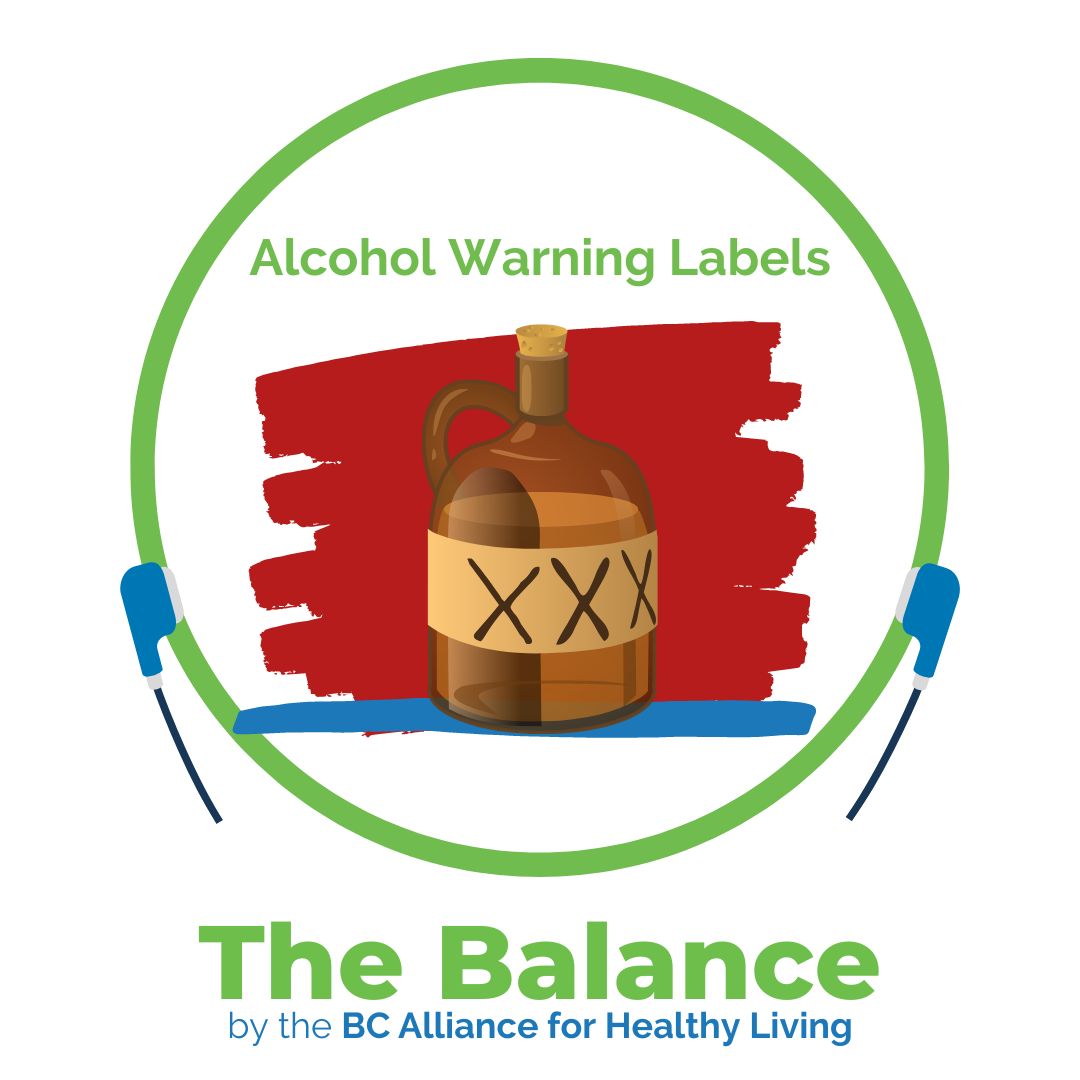
Alcohol warning labels: What are they? How do they help?
In this episode, Dr. Tim Naimi (Director, Canadian Institute for Substance Use Research) and Dr. Heather Bryant (Expert Advisor, Canadian Partnership Against Cancer) talk about how alcohol warning labels can help consumers learn about Canada’s updated low-risk drinking guidelines, and the chronic disease and cancer risk that comes with alcohol use, among others.
-
Mobile Produce Markets: A Food Security Solution webinar
BC Alliance for Healthy Living’s recent research has shown that 93% of British Columbians are not eating the recommended five or more servings of fruit and vegetables a day. We know that increasing fruit and vegetable intake helps prevent chronic disease, but how do we get to that point? Canadians are facing a high inflation…
-
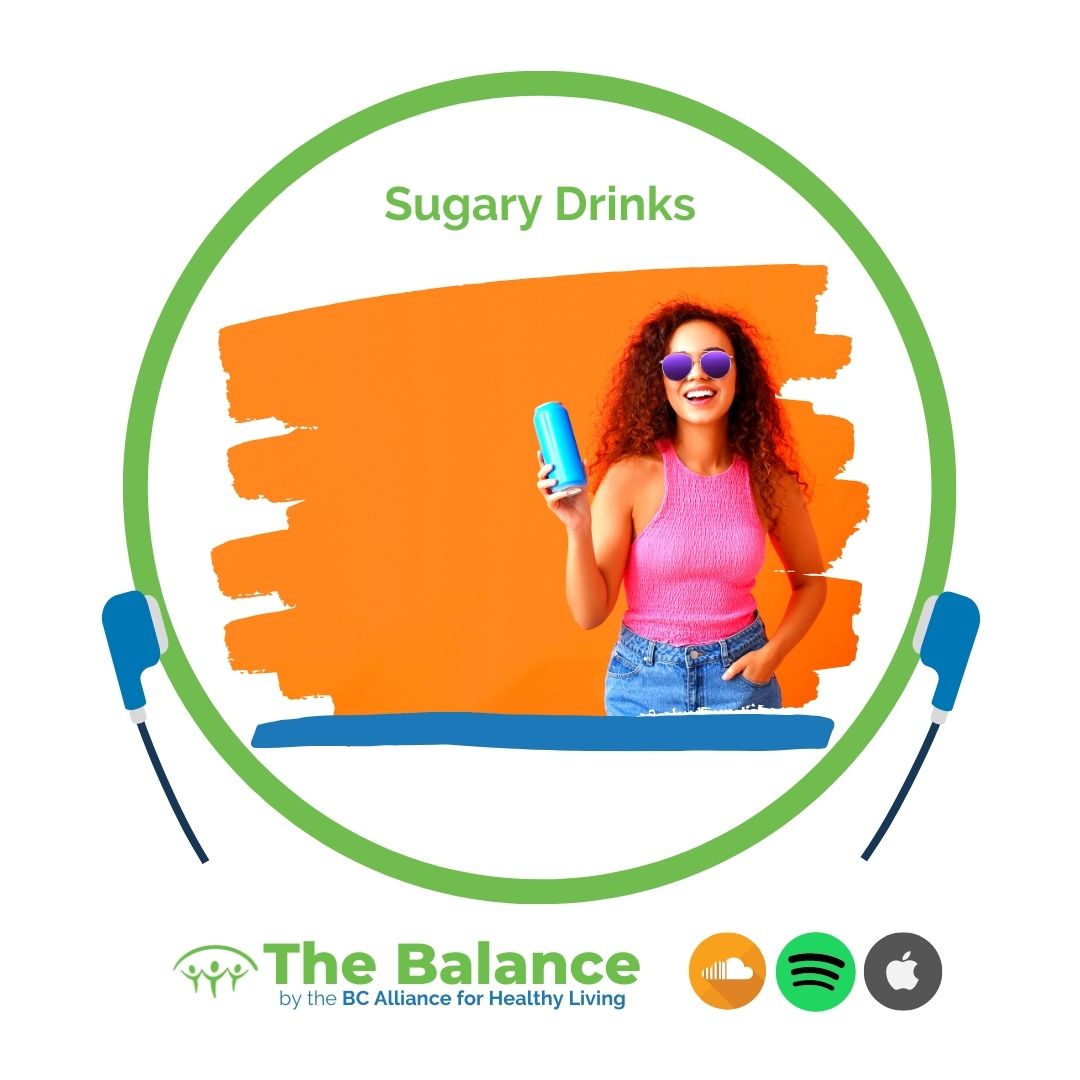
Sugary drinks: health impacts and equity implications
“Sugary drinks are uniquely problematic for a variety of reasons.” One of those problems is that sugary drinks are everywhere: grocery store aisles dedicated to pop, juices, sports and energy drinks, at restaurants, at summer fairs, food stalls and markets, in advertisements, on billboards and in our social media feeds. In this episode of The…
-
Sugary drinks: health impacts and equity
In this episode, we explore the health impacts of sugary drinks, some ways that can help reduce consumption, and how we can make sugary drink taxation equitable. Our guests are Dr. Tom Warshawski, Chair of Childhood Obesity Foundation and a consultant pediatrician based in Kelowna, and Dr. Jim Krieger, a professor at the University of…
-
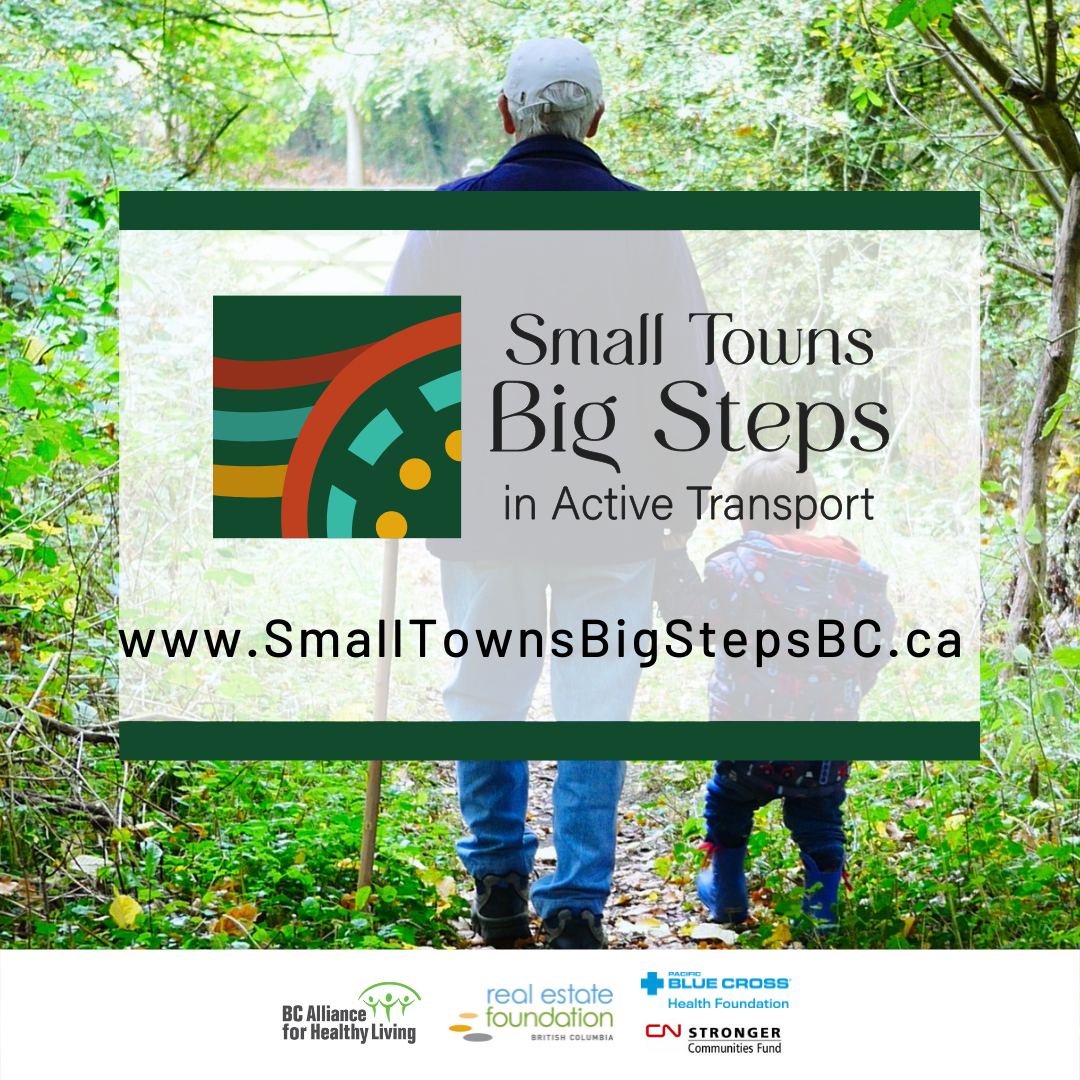
Active Transportation: Equitable, Sustainable and Achievable
“The climate crisis is also a health crisis.” This year, the World Health Organization (WHO) is focusing on encouraging governments to create communities focused on peoples’ physical well-being while also addressing the health of the planet. With World Health Day and Earth Day just weeks apart, we are reminded of the intersections between climate change…
-
EverybodyMoves: Gender, Part 1
“Often programs are not designed to meet the needs of girls and women; they are underrepresented as participants and leaders.” Terri Temelini, Program Manager at Canadian Women and Sport, explores gender inequities within sport and recreation with an intersectional lens.
- Show All
- @quitnowbc
- #Active Transportation #Small Towns
- #Active Transportation #Small Towns #Local Government #Government
- #BCBudget2020
- #bcpoli
- #BudgetDay
- #cdnpoli
- #ComPAReStudy
- #Covid19
- #CureCongestion
- #EarlyChildhood
- #Earth Day
- #elxn43
- #HealthyRecovery
- #HealthySchoolFood
- #MoreThanFood
- #MoveBC
- #NNSW2019
- #NutritionMonth
- #PhysicalActivity
- #PhysicalLiteracy
- #PinkShirtDay2019
- #schoolyeargoals
- #ScreenFreeWeek
- #SenCA
- #smokefree
- #UBCM2018
- #World Health Day
- 2slgbtqia+
- accessible
- Active & Safe Central
- active communities
- Active Communities Grant
- Active Communities Grants
- Active People
- Active People Active Places
- Active Places
- Active School Transportation
- active transportation
- Active Transportation Strategy
- Adolescent Health
- Advocacy
- alcohol
- appetite to play
- aquatic program
- Back to school
- barrier-free recreation
- barriers to participation
- Basic Income
- BC Budget
- BC Centre for Disease Control
- BC Chapter of the Coalition for Healthy School Food
- BC Cycling Coalition
- BC Elections 2020
- BC Healthy Communities
- BC Lung Association
- BC Recovery
- BC Recreation and Parks Association
- BCHLA
- BCRPA
- Before and After School Recreation Program Spaces Grants
- bike safety
- Bill S-228
- Bill S228: Child Health Protection Act
- Bowen Island Bike Park
- Budget2022
- Building Cultural Competency
- Bundles of Fun
- Canada Food Guide
- Canada’s Food Guide
- Canadian Cancer Society
- canoeing
- Child Health Protection Act
- children and youth
- children with disabilities
- Choose to Move
- chronic disease
- chronic disease prevention
- Circle of Health
- City of Vernon
- Communities
- communities on the move
- Communities on the Move Declaration
- community
- Complete networks
- Congestion Relief Fund
- Cooks Ferry Indian Band
- COVID-19
- Diabetes Canada
- Dietitians of Canada
- Documentary
- Dr. Guy Faulkner
- Dr. Mariana Brussoni
- early years
- ecology
- Elders
- equity-deserving communities
- equity-deserving groups
- EverybodyMoves
- Evidence-Informed Decision Making Casebook Issue #2
- families
- Families Getting Active
- Federal Election
- fitness centre
- Food Costing 2017 Report
- food insecurity
- Food Policy
- free skates and swims
- geocaching
- GoCNV
- health
- Health equity
- health inequities
- health promotion
- healthcare
- healthier communities
- healthy eating
- healthy living
- Healthy School Food
- Indigenous
- Indigenous Circle of Health
- Indigenous culture
- Indigenous leaders
- kids
- Kitselas First Nation
- Kitselas Five Tier System
- Kwadacha Roller Derby
- Land and Sea Cultural Program
- land-based activities
- lifeguard training
- low income
- McCreary Centre Society
- mental health
- mental wellness
- Mind Fit
- Mindful eating
- Minister of Transportation and Infrastructure
- Move.Commute.Connect
- National Non-Smoking Week
- New Routines
- New School Year
- New School Year Goals
- newcomers
- Non-profits
- Nutrition Month
- Older Adults
- outdoor activities
- Outdoor Play
- ParticipACTION
- PHABC Annual Conference
- physical activity
- Physical Activity for Health Collaborative
- Physical Activity Strategy
- Picky Eating
- plants
- policy
- Port Hardy
- Port Hardy Recreation
- poverty
- Poverty Reduction
- Pregnancy
- professional development
- Provincial Health Officer
- Public Health Association of BC
- Reallocation of road space
- recreation and physical activity
- Report Card
- Resolution B15
- Resolution B59
- Risky Play
- Running Free: Children’s Independent Mobility
- rural and remote
- SACY
- skateboarding
- skating
- skiing
- skill building
- Small Towns
- sports
- sports and recreation
- stigmatization
- Stop #Marketing2Kids
- Stop M2K Coalition
- Story Walks
- storytelling
- Strathcona Regional District
- sugary drink tax
- sugary drinks
- surfing
- swimming
- Taking the Pulse of the Population
- Tla-o-qui-aht First Nation
- Tofino
- traditional practices
- transportation systems
- Truth and Reconcilation
- Truth and Reconciliation Day
- Tsawassen
- Tsawassen First Nation
- Tumbler Ridge UNESCO Global Geopark
- UBC
- UBCM
- Union of BC Municipalities
- Unlock the potential of food
- Vancouver School Board
- Vantage Point
- Vaping
- Vapour product tax
- viaSport
- Walking
- Walking School Bus
- water safety
- webinar
- World Health Organization
- YMCA
- YMCA of Greater Vancouver
- young women
- youth
- Youth Health
- Youth Vaping
Contact Us
Questions about our policy recommendations, resources, initiatives, and activities? Reach out to us.
Contact Us